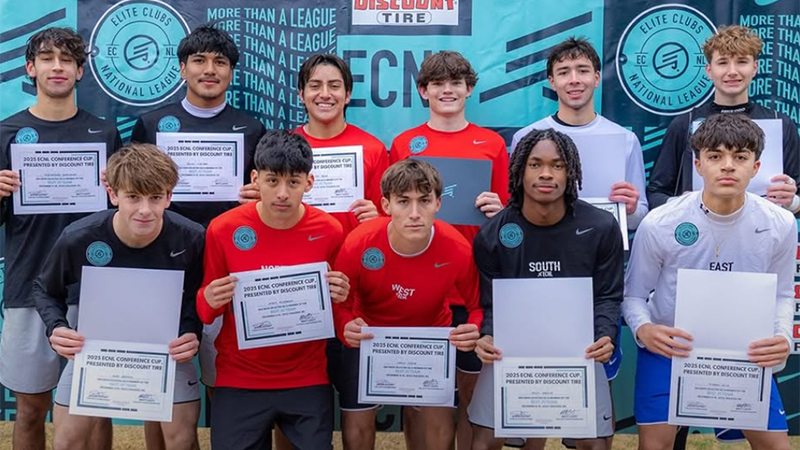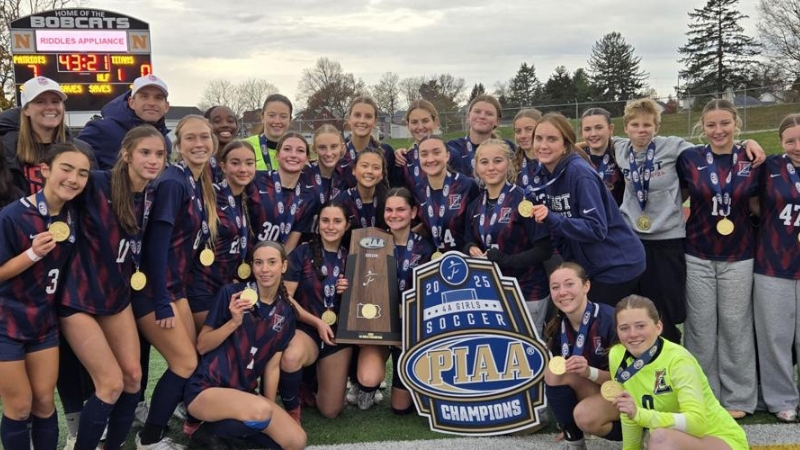Navigating Tax Implications for NIL & High

This content is provided FREE through our partnership with Dr. Scott Grant and Triple Threat Leadership/NIL Education to bring your family resources to learn the ins and outs about NIL, including the rules (each state is different), tactics, pitfalls, and marketplaces to take advantage of exciting opportunities available to student athletes.
Today is February 1st, and in the world of many, that means over the past week or so you've probably started to receive your W2's, 1099's, and all the other paperwork goodness that goes along with Tax preparation.
NIL deals should never be viewed as opportunities to just sign a contract and make some quick money (or get some free / discounted product, or a paid autographic session - which also is also taxable!!), but rather, the beginning of a process requiring the execution of the right moves, tracking the right things, and reporting all of that appropriately when the time comes!
Additionally, since most High School student-athletes that enter into NIL deals are claimed on tax filings by their parents, there is another layer of understanding necessary in regards to dependency status and whether a shift to their own return is necessary.
Hopefully the information below will be beneficial for those high school stakeholders considering or already executing NIL deals, as well as for Athletic Directors to support Student-Athletes / Families who undoubtedly may ask questions about wanting to move into this "NIL World".
Please note this is not an exhaustive list by any means, but rather, a small portion of what you'll want to discuss with a tax professional as you move forward.
Independent Contractor
Generally, student-athletes (or their parents) will be considered independent contractors by companies / individuals that sign them to NIL deals, which means they performed services for another person or entity. Most of the time, income taxes, social security, or medicare taxes are NOT withheld when performing work as an independent contractor, and student-athletes are required to make their own estimated federal and state tax payments, which includes the employer and employee portion of social security and medicare taxes (self employment taxes).
It's also important to note that while many will receive a 1099-NEC or 1099-K for deals where over $600 in taxable income is earned in the calendar year from a person or business who isn't your employer, you still must report any income earned, even if paid in cash, including through third party payment services like Venmo, Cash App, etc.
*If you are interested in learning more about these these intricacies, there were a few great articles written by Ryan Whelpley and RJ Curington, JD, MS with numerous FAQ's around tax season & NIL income - read that fully here:
- https://www.conductdetrimental.com/post/tax-season-faqs-for-nil-incom
- https://www.conductdetrimental.com/post/note-to-business-student-athletes-don-t-forget-taxes
Dependency Status
Many parents still claim their students (even when they are in college) as dependents, and it's important to consider how much money a student-athlete is earning from NIL income, and whether it outweighs the support from the parents, which would then likely no longer qualify them as a dependent.
This is extremely important to understand at the high school level as education credits are tied to tax returns, and be shifted / impacted greatly based upon the amount of money being made, as well as dependency status.
It's also important to understand that as your student-athlete transitions to college, NIL income can have a major impact in regards to their Expected Family Contribution (EFC), which is calculated using a formula that considers income, assets, family size, and the number of family members attending college during the year.
The formula can shift based upon whether the student is a dependent on their parents' tax return, and the amount of income earned by the student will impact the amount of their Pell Grant which is decided by information submitted via the FAFSA.
Long story short - make sure you get some professional financial advice / college planning in regards to whether or not NIL earnings will cause unintended consequences for your family / student.
Here are some great additional resources / articles around Need-Based Aid and potential consequences of NIL Income:
https://spry.so/insights/need-based-aid-and-the-unintended-consequences-of-nil/
https://www.jmco.com/name-image-likeness/
https://tax.thomsonreuters.com/news/the-long-read-tax-implications-of-college-collectives-nil-deals/
https://businessofcollegesports.com/podcast/navigating-taxes-for-student-athletes-with-nil-revenue/
Reportable income
Any income received from NIL activities, including non-cash compensation, is considered taxable income and must be reported on the athlete’s / parents tax return.
This includes payments from endorsements, sponsorships, merchandise sales, etc. While many don't realize that if a business pays a student athlete in the form of products endorsed for the business (example - shoes, clothing), the athlete should include the fair market value of those products in their taxable income.
It’s vital that accurate records all payments received is kept in some manner. Whether that's through an online program linked to a specific bank account that you utilize just for your NIL transactions / expenses, or, with a google document / excel sheet that provides at the bare minimum information such as:
- Date of Transaction
- Company / Person's name contracted with
- Services Provided
- Payment Amount
The record keeping also extends to to ensuring you have copies of receipts, invoices, and contracts, among other things, and these accurate records will help avoid any potential tax issues in the future.
State & Federal Taxes
In addition to federal taxes, high school athletes may also be subject to state taxes on their NIL earnings. This will vary depending on the state in which the athlete resides knowing as their "Resident State", as well as states where you may be "working" NIL deals or eventually attending college, known as "Non-Resident States".
Your state of residency is going to have first dibs on any income that you earn, even if you end up participating in athletics at the collegiate level and you've gone out of your resident state, as often times educational movement is viewed as temporary.
If you're making income that is being sourced in the state where you go to college, or in another state that is not your permanent residence, those states will most likely want to grab a piece as well.
And while you may be able to utilize specific deductions so you're not getting double taxed, it's important that families have professional support to understand not only the non resident tax rules in Non-Resident states, but all the different tax elements each unique state may possess.
Additionally, depending upon the amount of NIL revenue made and whether a student-athlete is being claimed as a dependent, Federal taxes may come into play for them individually, or as an additive to parent/guardian tax filings
Agent Fees
While most high school state athletic association policies explicitly state that students are not allowed to utilize agents, there are a few that do. Even if your state doesn't allow it, I've seen students who only play one sport finish that season, and then quickly sign with an agent to move forward.
If a high school student-athlete (family) hires an agent to negotiate NIL deals, it’s important to understand the tax implications of these fees. Agent fees are typically deductible as a business expense, but only if the agent is a licensed and registered professional. If the agent is not licensed, the fees paid to the agent cannot be deducted as a business expense.
Whether this is something you're considering or not, as with everything that goes into proper NIL preparation, educating and surrounding yourself with professionals in specific areas of expertise to support positive movement forward is paramount in the student-athlete being successful not only with NIL, but in moving forward in life.
To be honest, this is just the tip of the iceberg in understanding a little about NIL and financial education / taxes, and it's easy to head down a rabbit hole real quickly trying to figure out what to do next in regards to quarterly filing, dates of importance, engaging with collectives if you're a high level recruit, developing a business entity if it gets to that point, and the list goes on.
But as more states high school associations approve NIL, I believe schools have a tremendous opportunities to further integrate this type of preparation within their financial literacy components already in place through many ways, including
- Bring in a CPA / Tax professional to talk about NIL & taxes.
- Do a class project research / building a financial reporting document that would help prepare record / organize their business work.
- Discuss 1099's, W2's, W9's, business structures, and a plethora of other relevant financial information with an application to NIL.
Many schools already have some, if not all, within curricular structures, but i'm telling you, NIL applications within these areas give an incredible connection point for engagement with all students.
On a call earlier this week I stated that while NIL can be scary for Athletic Directors and School Administrators in a lot of respects, I'm a firm believer that this is one of a few times that something happening in the athletic environment can take the lead to add further value and engagement to educational opportunities already taking place, and be an extension INSIDE the classroom.
NIL Education is about peeling out the life skills students need to know, clarifying that all students need to understand these pieces, and creating an educational plan for everyone through NIL application projects.
When that's at the forefront, and educational based athletics is the driver, whether a student-athlete enters into an NIL isn't the focus, but rather, knowing they're prepared for life with the skills they've developed in the process is what we work to do through athletics every single day!
Headlines
- Recruiting Roundup: December 22-January 4
- How Do I Get Scouted by TopDrawerSoccer?
- 2026 Women's Division I Transfer Tracker
-
Mid-Atlantic High School Roundup - Dec.

- ECNL Boys Conference Cup Best XI
-
Commitments: In-State Decision

-
Northeast High School Roundup - Dec.

- Men's College Postseason Top 100 Freshmen
- Vote for Women's College Soccer Best Goal
-
Player Rankings Spotlight: 2027 Boys




